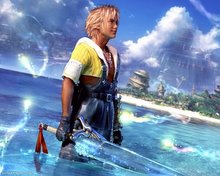
The mood of this novel changes throughout the story. The battle game scenes mostly give tense feelings (by describing the battle scenes and letting Ender win in a remarkable way). The mood is happy when Ender gains victory in the games because the author described how the team cheered when Ender wins. Like I said in the previous entry, the novel saddens me. It saddens me because Ender only finds happiness when he wins a game, which tells me that he totally became a soldier that the adults wanted him to become, a machine-like being. This novel seems like our society decades later. People picking out best and young for wrong uses and the young ones knowing nothing about what they are doing… giving up youth for something you do not know is not a fair deal. Soon our world will become like that, a world that does not allow weak people, and there will not be any solution. Was not the world’s goal to live happily? I do not understand how picking the best people and making them work makes the world happy. Somehow, the world’s goal has changed into having the most power.




